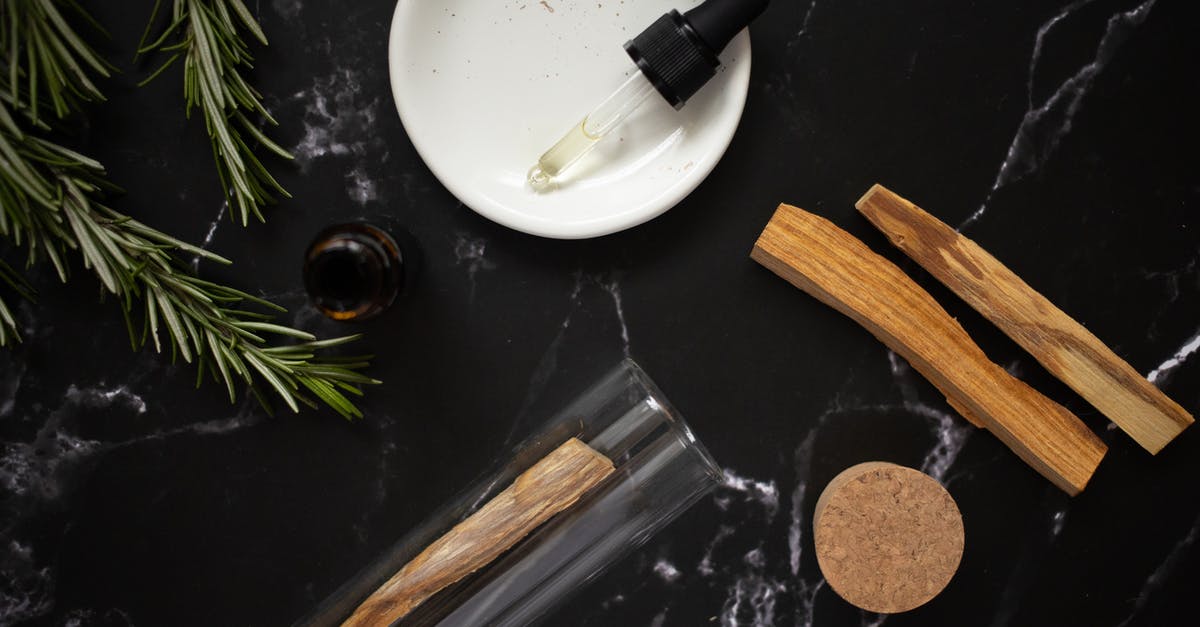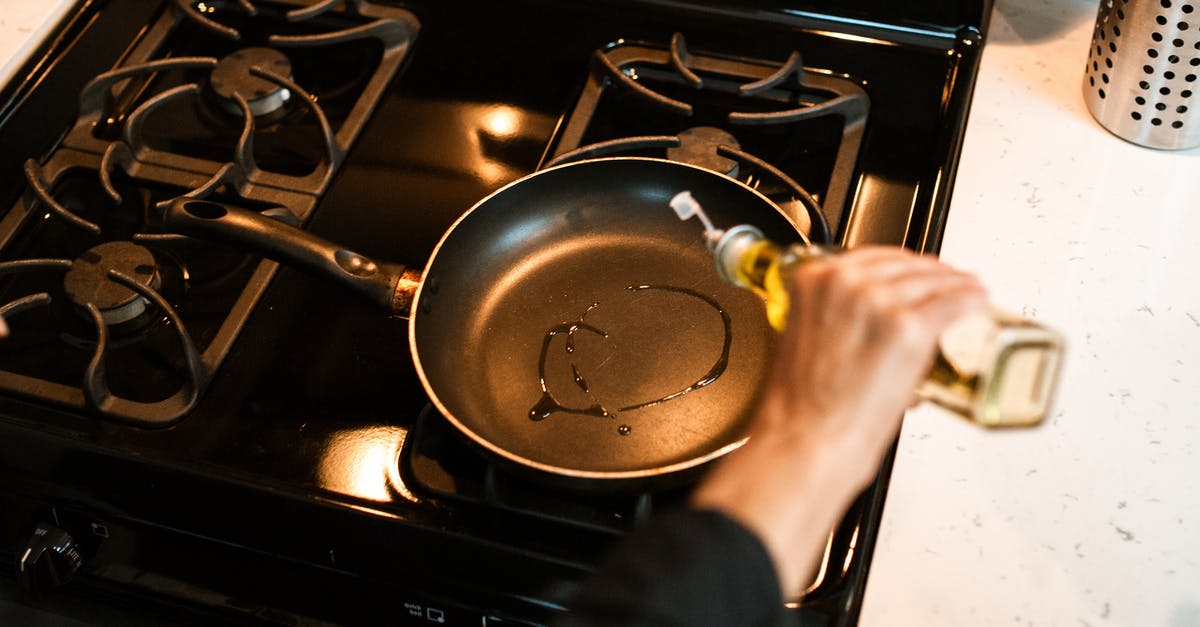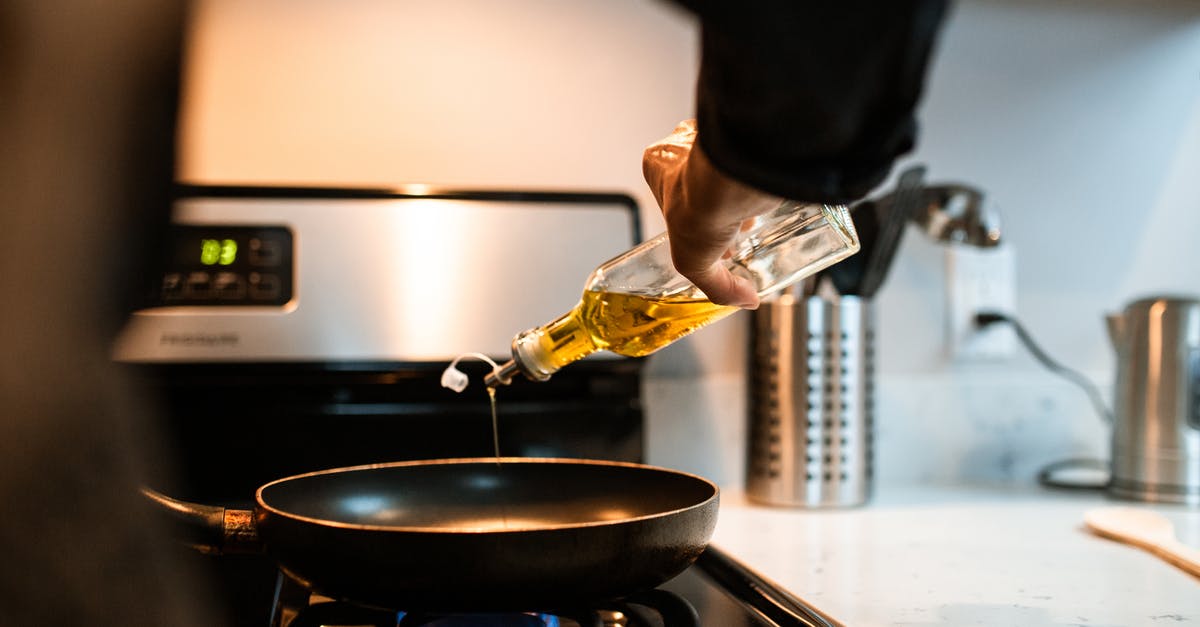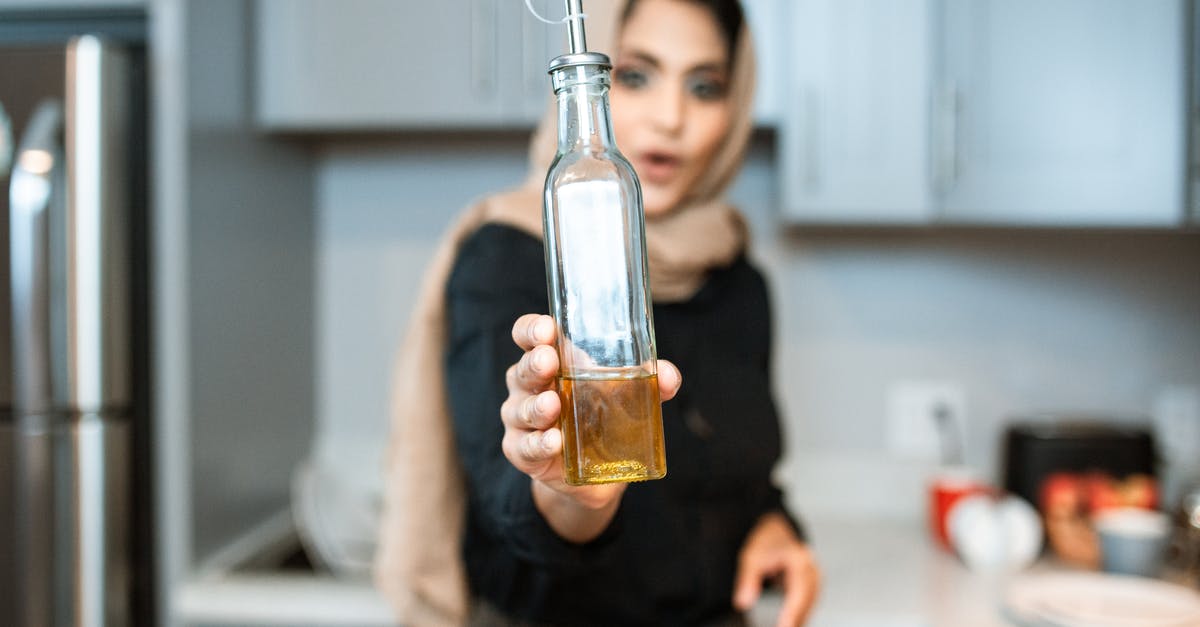No oil on non-stick pans?

My boyfriend is convinced that a non-stick coating on a pan (Teflon, seasoned cast iron, eco-ceramic, what have you) is equivalent to eliminating the need for using any cooking oil whatsoever.
Is this in fact the case? I'm fairly sure that it only reduces the amount of oil necessary to keep things from sticking, but I'm having a hard time proving this (other than the empirical tests that keep failing). Essentially, he is a huge fan of fried eggs, but is trying to avoid the eventual heart attacks.
Best Answer
There are two parts to this question, the stated part, and the unstated "are you really frying an egg if there is no oil?"
For the first part, most manufacturers of non-stick pans claim that their product makes oil unnecessary, and generally I've found that to be true. A little oil helps, but "necessary" might be a stretch.
To maximize your non-stickyness of a non-stick pan, you should always preheat the pan before adding the food, at least to 250F or so. Preheating causes the teflon to expand a bit, closing up pores and micro-scratches in the surface.
It is also common for oils from the past to form a polymerized layer on top of the teflon, making the pan more sticky. This is actually worse when you use aerosol spray oils, because the tiny droplets hit the pan and very quickly polymerize to form a slightly sticky layer. This layer is similar to the one you intentionally create when seasoning a cast iron pan, but in this case it is not helpful. All-Clad recommends periodically cleaning teflon pans with a light scrub of baking soda and water to remove that coating of oil. It should bring back the maximum slippery of your teflon.
When cooking protein-rich foods, you can also minimize sticking by letting the food cook a bit before attempting to move it. The loose, floppy denatured proteins in an egg are extremely sticky, but when they coagulate (set) from cooking, they become less sticky. It may seem impossibly sticky at first, but may release on it's own after a minute of cooking.
As to the second, unstated part, oil provides flavor, and is also a heat-transfer vehicle. When the food is on the pan, if you looked at it with a microscope only a small portion of the food is actually in contact with the pan. Those areas will get heated more, and other areas will get heated less. A little oil fills those gaps, causing more even thermal contact, which allows fried food to fry, rather than just get burned in some areas.
It is really a matter of taste whether the flavor of the oil and the way that it changes the texture of the food is appealing to your boyfriend. I wouldn't like it without any oil, but if he does, well, so be it. If he doesn't really like the taste, but is concerned about health, I'd suggest using a little olive oil - it has no cholesterol, is low in saturated fats, and has a good flavor. Different than butter, but still very enjoyable.
Pictures about "No oil on non-stick pans?"



Quick Answer about "No oil on non-stick pans?"
Their coating lets you stir fry, sear, or sauté without worry that you'll be unable to dislodge a scallop or scrambled egg from the surface if you didn't use enough oil. The best nonstick pans can actually cook foods without using any butter or oil at all.Can you use non-stick pans without oil?
The short answer is YES. With non-stick cookware, you don't need as much oil as a typical stainless steel pan. In fact, you don't even need to cover the whole pan.How do you fry non-stick pans without oil?
How To Make Food Not Stick To Pan Without OilHow to fry an egg without oil | Best non stick pan
More answers regarding no oil on non-stick pans?
Answer 2
I've tried many, but never found a "non-stick" pan, using no fat, that could cook an over-easy egg without sticking. (30+ yrs cooking experience in restaurants and personal chef.) I always used a folded up paper towel with a thin layer of olive/canola oil on it, just quickly rubbing over the bottom of the pan. This does work after pan is heated, using less than a gram of oil (if that). It's silly to worry about that minuscule amount, considering the amount of fat in the yolk, btw. This trick also makes the best crepes, not oily at all.
Answer 3
After more than half a century of use, exclusively, of cast iron frying pans and EVOO (rid my life of butter decades ago), a few months ago I substituted an irreplaceable broken cast iron pan with a Teflon one. It's been good.
A few weeks back I bought one of those 'stone'' ones. It's s mottled grey, with a brownish plastic handle. Light as aluminium. The first thing I did after washing it, was to see if the ads with oilless frying eggs sliding around freely, were the usual dishonest marketing bs. But nope; with no oil the egg didn't stick at all. Flipped and fried briefly, yolk punctured and left liquid in the centre, the egg slid around like Rimmer on his space surf board.
This morning, I've just cooked eight thin crepes with no oil and no problem at all.
I'm amazed.
Answer 4
I sell most of the frying pans besides Teflon, ceramic is greener and that one is 60% less oil that you need. You can get many versions of this pan; some of them contain silver ions which are antibacterial. My sister has this one and adds a splash of water but no oil).
I would recommend a marble frying pan; with marble you don't need any oil what-so-ever to cook with it. Nothing sticks and it's easy to clean. No need to scrub, just warm soapy water. I get heaps of people coming to my shop saying they bought the blue ones that they sell at big W and the surface peeled; the ones I sell do not peel.
As for cast iron, this really depends on the type of cast iron. Enamel coated ones still need a bit of oil (depending on what you are cooking). The non coated ones don't need oil but you need to season them (which means placing the pan on medium heat and running oil over it after every use) or it will rust.
Sources: Stack Exchange - This article follows the attribution requirements of Stack Exchange and is licensed under CC BY-SA 3.0.
Images: Monstera, RODNAE Productions, RODNAE Productions, RODNAE Productions
